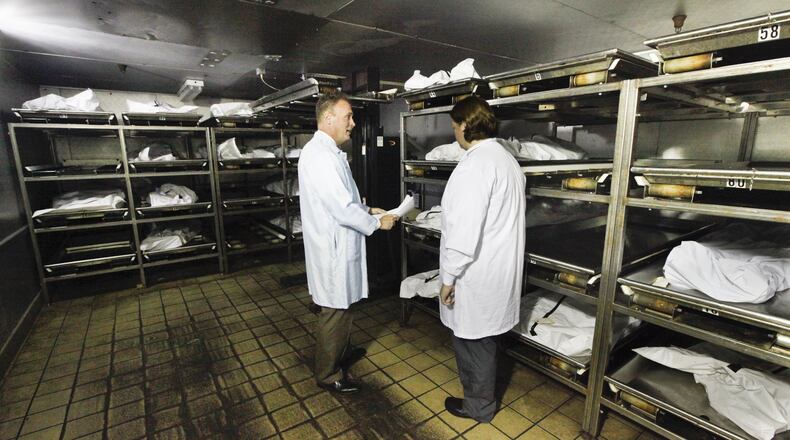So far in 2019 there have been 72 overdose deaths in the county.
Through the efforts of the Community Overdose Action Team (COAT) the county reduced the number of overdose deaths from a record 566 in 2017 to 289 in 2018.
RELATED: Dayton cut overdose deaths in half — and learned these lessons to prevent the next crisis
Numbers continued to decline in January and February but were above last year’s total for March, according to preliminary numbers from the coroner’s office.
“The increase in overdose deaths is avoidable, but only if we all act together to continue to solve the problem of addiction. If you know anyone who uses illegal drugs, please share this information with them and carry naloxone,” said Dr. Kent Harshbarger, the Montgomery County coroner.
Harshbarger’s office is continuing to see the powerful opioid fentanyl mixed into various street drugs. And they’ve now seen cases where the naloxone-resistant drug Xylazine is also mixed in.
RELATED: Dayton getting national credit for battling opioid crisis
COAT is reminding the public that any illegal drug could contain fentanyl, which increases the chance for an overdose. While there is no safe way to use illegal drugs, experts recommend these steps to help reduce the risk of death:
- In the event of an overdose call 911 immediately.
- Have overdose-reversing drug naloxone available, and someone who can administer it, in case of an overdose.
- Call Samaritan Crisis Care 24/7 at 224-4646 for crisis, treatment and referral.
- Do not use drugs containing fentanyl.
- Do not use drugs alone.
- Do not share needles.
Project Dawn offers free weekly naloxone overdose education and distribution every Wednesday at noon at 601 Edwin C. Moses Blvd, Door F, CrisisCare entrance, in Dayton. Call 937-734-8333 to schedule a group training.
The Path Forward: Addiction in Dayton
- » Millions of tax dollars pay for new drug treatment -- is it working?
- » Program examines if fentanyl test strips reduce overdoses, save lives
- » Dayton getting national credit for battling opioid crisis
- » Vets twice as likely to fatally OD -- what the Dayton VA is doing about it
- » ‘Life Changing Food’: This eatery hires only people recovering from addiction
- » New challenge for recovering addicts: Finding a job
- » Can Dayton go from 'overdose capital' to a model for recovery?
- » Mother of 7 rebuilding family after addiction
- » A day with Dayton's overdose response team
About the Author
